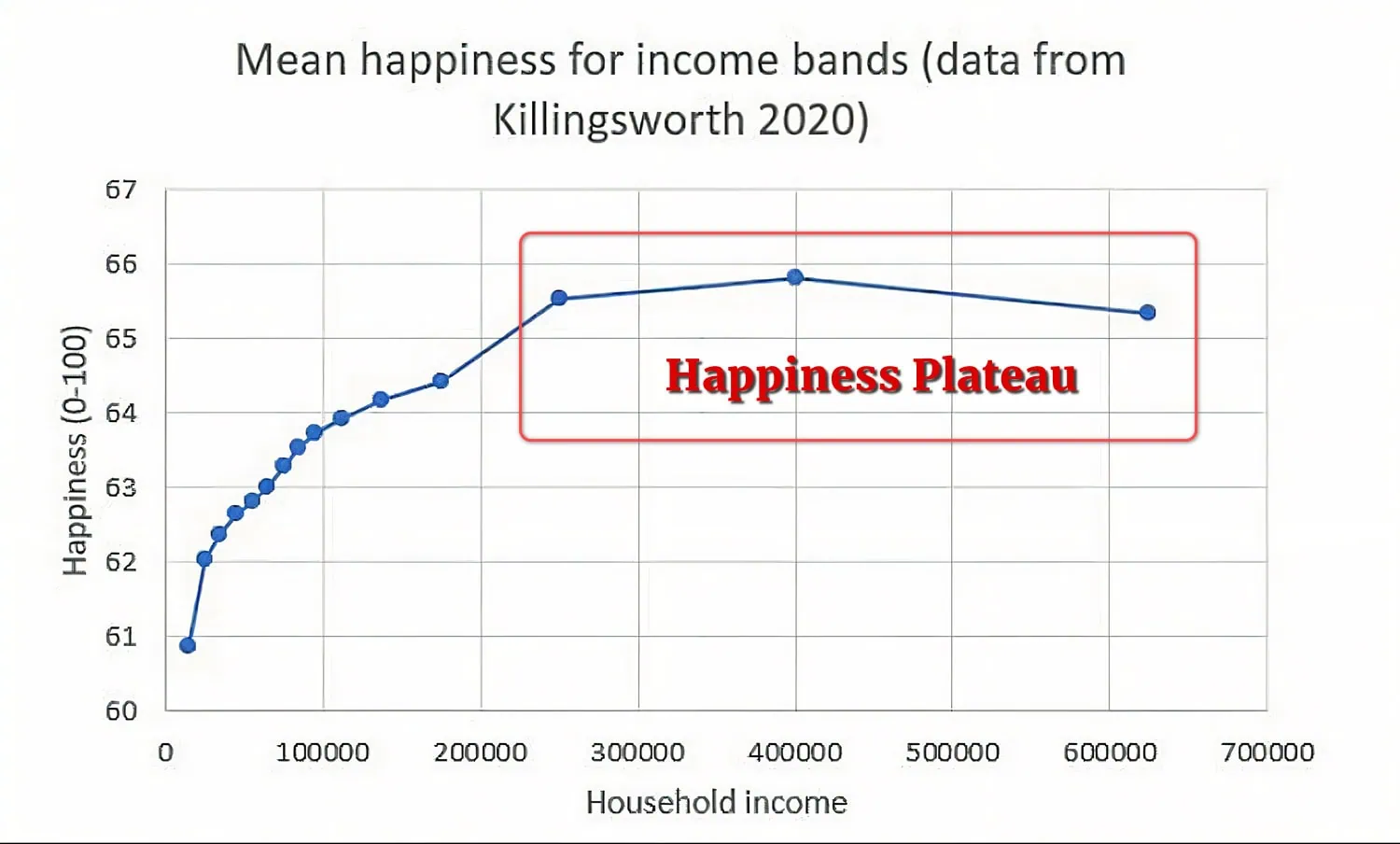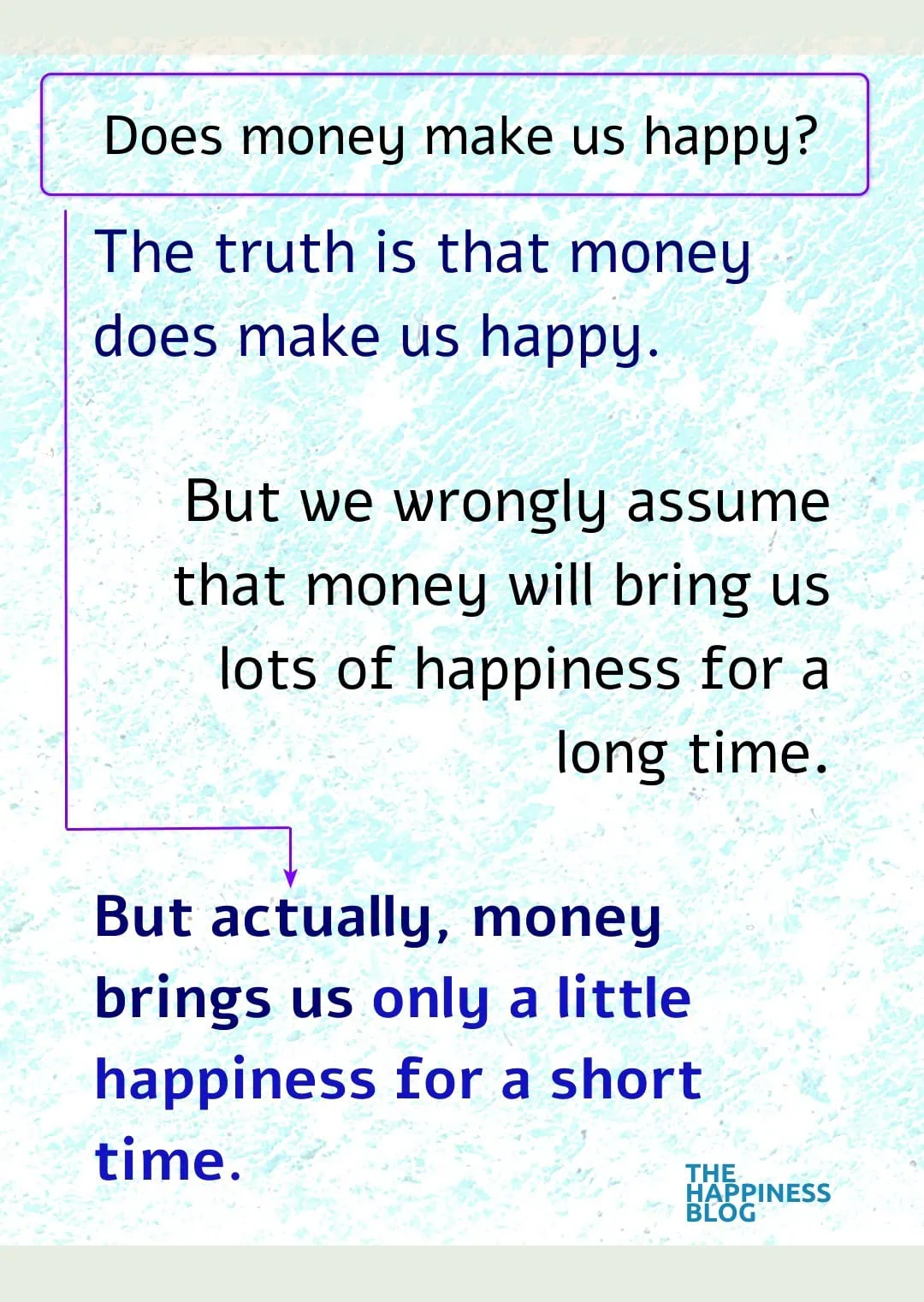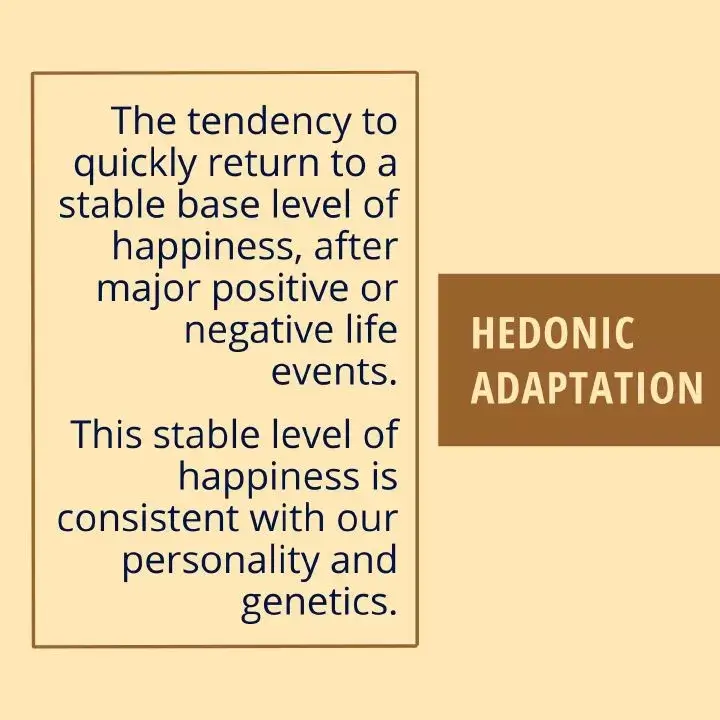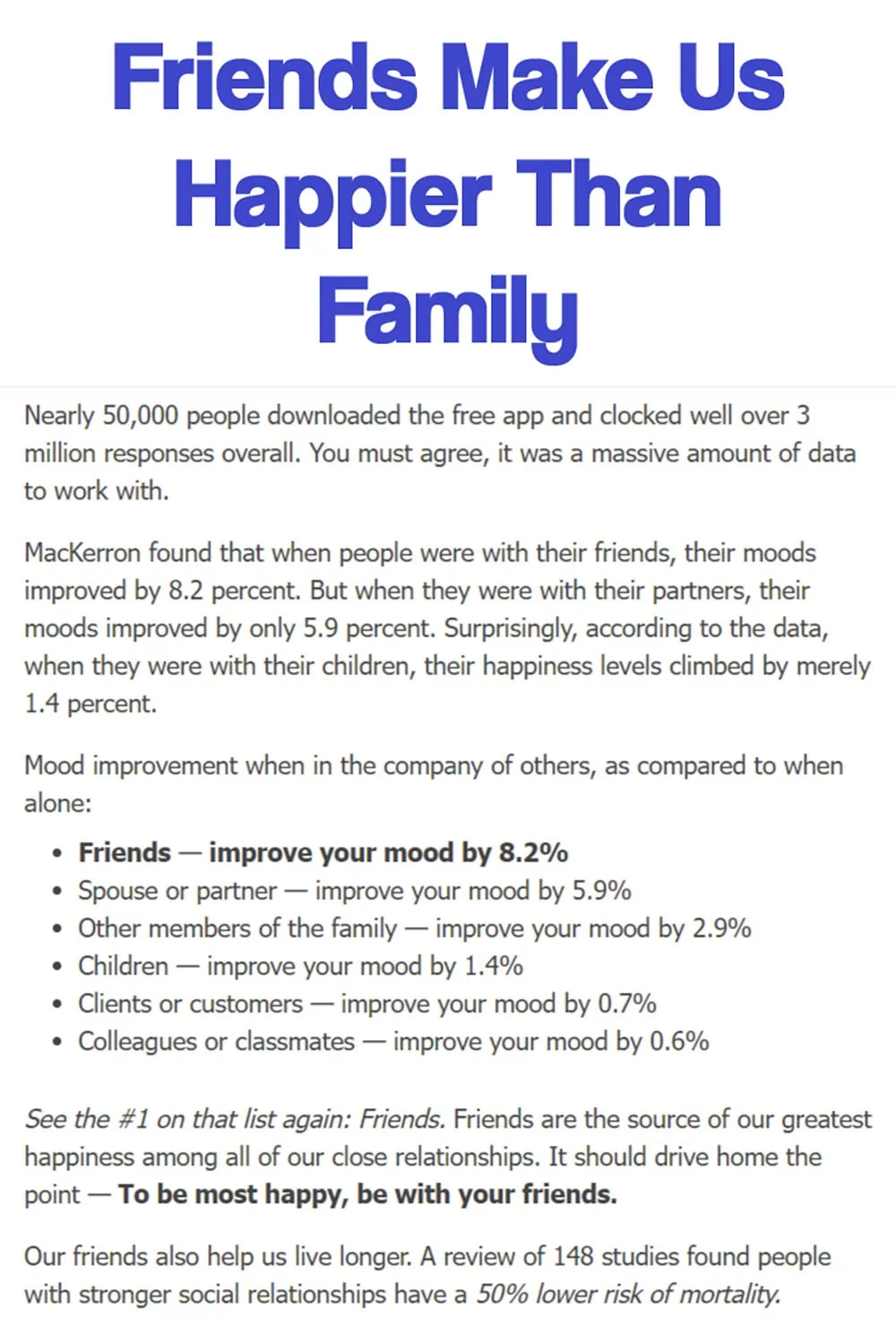Today's Monday • 9 mins read
— By Dr. Sandip Roy.
I have been studying the psychology of happiness for more than a decade. The most commonly asked question I get is, “What is happiness?”
At that, many definitions and quotes from positive psychologists flood my mind. It isn’t easy to pick one. Over the years, I have started to say this:
“Happiness is both how good you feel at this moment, and how content you are in your life.”
- The first part, how many positive emotions you now have, is called hedonia.
- The second part, how satisfied you are with your life, is called eudaimonia.
- Psychologists refer to overall happiness as subjective wellbeing.
I have done a detailed post on happiness-boosting strategies: 10 Greatest Happiness Hacks From Positive Psychology.
First, answer these 10 questions:
Can You Correctly Answer These Happiness Questions? A Quick Self-Check!
1. Does happiness boost your immune system?
2. Does money make us happy, on and on?
3. Should you do “the pursuit of happiness” thing?
4. Can you catch happiness from a happy friend?
5. Do you have a happiness set point that you always gravitate to?
6. Does happiness change as you age?
7. What gives more happiness, a happy experience or buying a thing you wanted?
8. Does saying thank you make you happier or miserable?
9. Does giving feel good as well as do good for you?
10. What’s the best time to be happy?

Now, let’s find out the correct answers!
1. Does happiness boost your immune system?
Yes. Happiness can boost your immune system!
It’s like a free supplement pill that you can have almost whenever you want to.
I say so because experts found happiness depends more on our actions than on our circumstances. And we can act in definite ways to raise our happiness levels.
So, if you’re looking to ward off the flu (and there’s a study on that), don’t forget to add a daily dose of joy. It’s way more fun!
2. Does money make us happy, on and on?
Money boosts happiness up to a point. After that, happiness stagnates.

- At lower income levels (left side of the graph), increases in household income are associated with notable gains in happiness. This suggests that money improves well-being when basic needs are unmet or financial stress is high.
- As income rises (middle to right side), the curve flattens, forming a “happiness plateau.” Beyond a certain point (~$100,000–$200,000, though the exact threshold varies by study), additional income yields diminishing returns for happiness.
- The non-financial factors (e.g., relationships, purpose, health) become relatively more important for happiness once financial security is achieved.
So, money can buy a life out of poverty and need, but it can’t keep on buying happiness forever.
Once your income reaches a certain point, it’s as if your emotional bank account says, “Enough already! This ATM has an upper limit, and you can’t withdraw more.”
Another truth: Money makes us happy for only a little while. More on it: How Can Money Buy Happiness (Psychology of Happy Money).

3. Should you do “the pursuit of happiness” thing?
This is The Happiness Paradox: Pursuing happiness can often make us less happy.
Studies prove it. You can’t pursue happiness and be happy.
- Happiness as a target is a bad target to set and aim for.
- Happiness is a by-product of the choices we make.
- It’s a secondary output of the usual business of life.
The harder we try to catch happiness, the faster it runs away. Like a dog chases its tail and never finds rest until it lets go.
So, the next time you do something you enjoy, just enjoy what you’re doing instead of trying to be happier.
4. Can you catch happiness from a happy friend?
Happiness is contagious. Catching happiness is easier than catching a cold. It spreads through social networks like a cute cat video on the internet.
You’re 15.3% more likely to be happy if a person directly connected to you is happy.
James Fowler & Nicholas Christakis came together at Harvard to conduct a meta-study involving 5,000 students. They found:
- A friend who lives within a mile and becomes happy increases your chance of being happy by 25%.
- Spouses living in the same house increase your happiness by 8%.
- Siblings who live within a mile increase your chance of being happy by 14%.
- Next-door neighbors can boost your happiness by 34%.
And, this PhD thesis By George Mackerron found that our friends make us happier than our family!
So, if you’re looking to catch some joy, hang around happy people. It’s a contagion you’d want to get!
5. Do you have a happiness set point that you always gravitate to?
Much like our weight, we all have a happiness ‘set point.’
Whether you win a lottery ticket and become madly happy, or lose a significant sum of money and are driven to tears, none will last. You will return to your base level of happiness in some time.
It’s like our emotional thermostat, always bringing us back to our default level of joy.
This phenomenon is called hedonic adaptation. This explains why, after we achieve or acquire something, the initial happiness fades, and we return to our baseline level of happiness. And, after a profoundly sad event, we gradually rise to our baseline level of happiness.

So, no matter what life throws at you, remember, your inner happiness control is working just fine!
6. Does happiness change as you age?
What is the relationship between happiness and age? Do you get happier or sadder with age?
- Do we become more miserable as we age?
- Or, do we actually get happier as we age?
- Or, is our happiness relatively constant, with a few boosts or dips (marriage, birth, promotion, illness, etc.)?
It seems happiness and age have a U-shaped relationship (Frijters & Beatton, 2012).
- You have your happiness highs in childhood and youth.
- There is almost no change in happiness between the ages of 20 and 50.
- Happiness starts to increase around 55, after which, there is a peak around 67.
- That is followed by a major decline after 75 years of age.
So, happiness over a lifetime is like a roller coaster ride. Your minimum level of satisfaction is at your middle age (30 to 50 years). If you’re any age over 20, take heart that the ride goes up again!
7. What gives more happiness, a happy experience or buying a thing you wanted?
When it comes to happiness, experiences beat material possessions hands down.
It’s as if our joy prefers souvenirs of memories over shiny new objects.
So, the next time you’re torn between a vacation or a new gadget, remember, joy loves a good story!

8. Does saying thank you make you happier or miserable?
It turns out, saying ‘thank you’ is like a ‘happy pill.’
The simple act of expressing gratitude can significantly boost your mood.
So, if you’re looking for a quick joy pick-me-up, try writing a thank-you note. It’s a prescription you can write yourself!
9. Does giving feel good as well as do good to you?
Giving not only feels good, but it’s also good for you. When you give, happiness comes back like a boomerang.
There are many ways to give:
- Charity: Donating money, goods, or time to support needy people.
- Philanthropy: Long-term, strategic giving, often involving large-scale donations to address systemic issues.
- Volunteerism: Offering time and skills without monetary compensation to help others or support causes.
- Kindness: Small, everyday acts that improve others’ well-being, like helping a neighbor or offering a kind word.
- Service: Giving professional or personal assistance to individuals or communities, often through organized efforts.
- Reciprocal Giving: Helping others with the expectation that they might help you in the future, fostering mutual support.
- Altruism: Selflessly helping others with no expectation of personal gain or recognition.
- Generosity: Willingly giving more than is necessary or expected, often involving sharing resources, time, or support with others.
So, if you’re looking for a joy boost, remember, it’s better to give than to receive!
10. What’s the best time to be happy?
Your best happiness often lies in the present moment, not in the past, not in the future. So, enjoy this moment fully.
- Constantly seeking future achievements, or dwelling on past regrets or future worries, can make our happiness inconsistent in our daily lives.
- Studies show that mindfulness, the practice of being fully present and engaged in the current moment, is associated with greater levels of happiness and lower levels of anxiety and depression.
- The concept of “flow,” introduced by psychologist Mihaly Csikszentmihalyi, describes a state of complete immersion and engagement in an activity. When we are in the state of flow, we often experience optimal happiness and life satisfaction.
4 Facts: Time And Happiness:
- Having too little time — linked to less happiness.
- Having too much time — linked to less happiness.
- Focusing on time (vs. money or worries) — increases happiness.
- Intentionally spending the time available — increases happiness.
Final Words
And finally, chasing happiness too hard can actually reduce your chance of finding it. So, stop chasing happiness, and instead, AIM for lifetime happiness.
• • •
√ Also Read: 2 Weeks Self-Love Challenge: Love Yourself More In 14 Days
√ Please share it with someone if you found this helpful.
» You deserve happiness! Choosing therapy could be your best decision.
...
• Disclosure: Buying via our links earns us a small commission.

